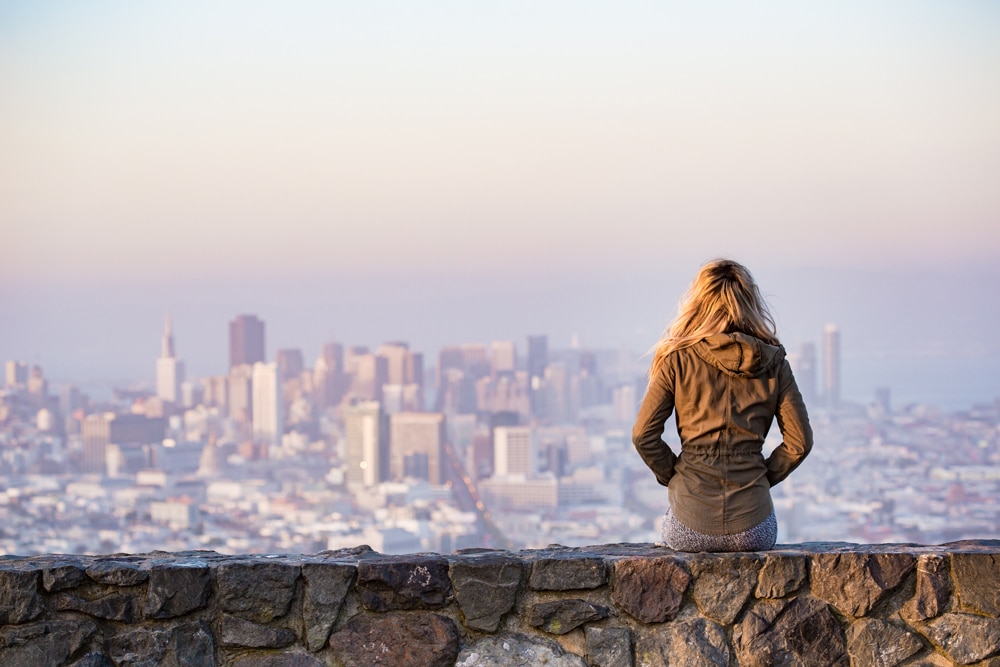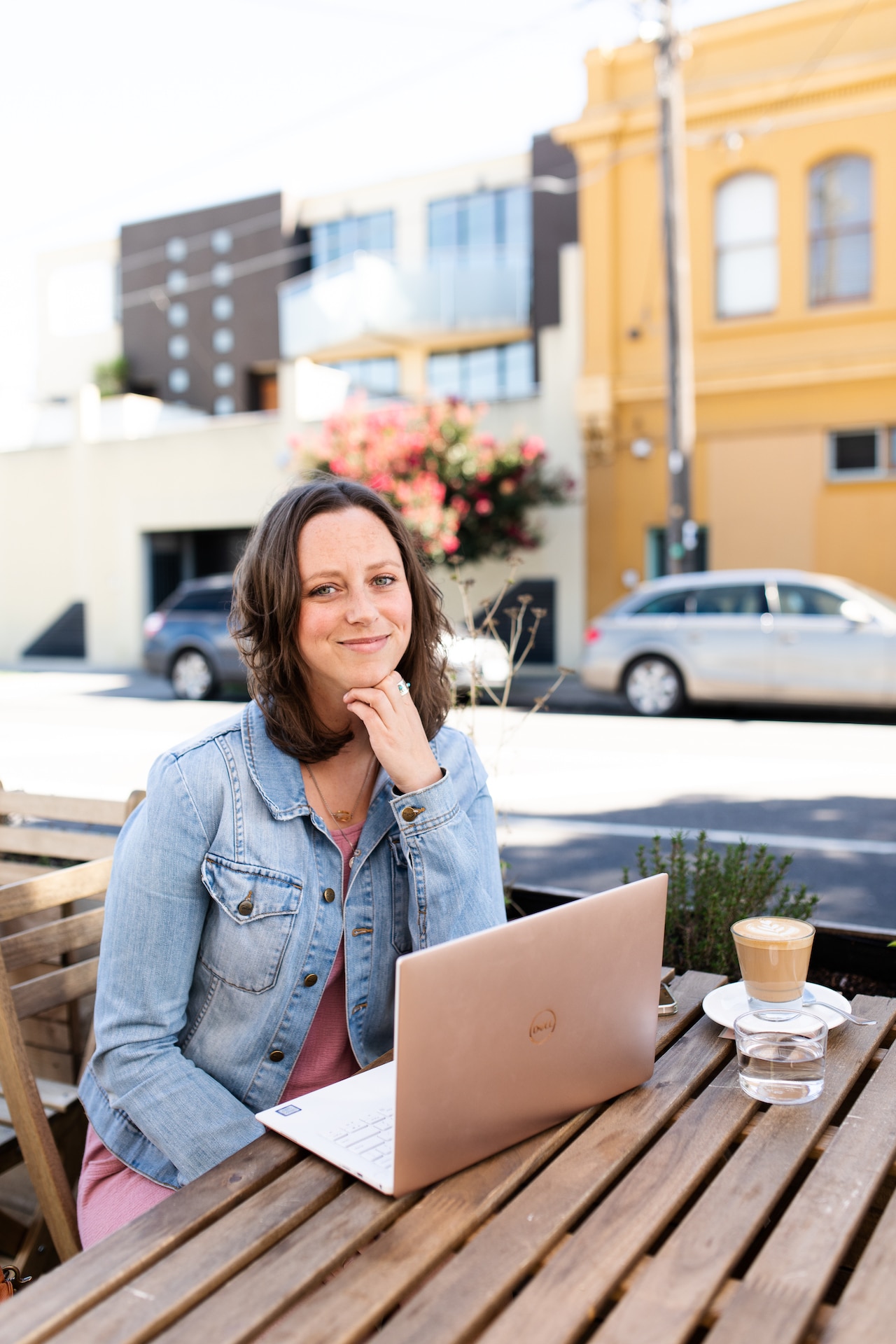Since 2009 I’ve been to over 45 countries. Some would say I got the travel bug late (I didn’t leave Australia till I was 22) but I’ve definitely made up for it in recent years. One of the highlights of my life was when I had filled up my passport only two years after I received my first stamp. While I’ve done most of my trips with a partner or friends, I have done a few solo trips – from weekends away in Europe to work trips to the USA to a one-month creative retreat in Thailand.
I prefer travelling with someone but I also love travelling too much to wait for people to be able to join me. Heading off on your first solo adventure overseas can be a little daunting. If you’re anything like I was you’re probably thinking, “what happens if I get lonely?” or “am I going to be safe?” or “how do I try all the food without looking like a pig?” OK, maybe that last one is just me.
Yes, there are some downsides to travelling alone but there are some definite plus sides too – you can take as long as you want to see the sites, you’ll make new friends fast and you can stick to a budget, just to name a few. So if you’re hesitant to book your first solo trip, keep reading. I’ll show you how a little planning can leave you feeling excited, not scared, about your overseas adventure.
Here’s how to plan your first solo overseas adventure
Choose a destination you’ve been to before or where you feel comfortable
I’m going to be honest here, I’ve never been to South America so I probably wouldn’t make my first trip there a solo one (unless I did a tour). And although I’ve been to East Africa, I went on a tour, so again, I probably wouldn’t travel around on my own just yet. It’s not that I think these places are dangerous, far from it. I just don’t feel as comfortable travelling there as I do in Asia where I’ve spent a large amount of time (I lived in Bangladesh for a while, too).
You don’t need to be an extrovert to travel on your own. But I do think you need to have confidence. If you don’t feel comfortable with your surroundings and you’re looking over your shoulder every five minutes, you’re not going to have much fun. That’s why I recommend doing your first solo trip in a country where you’ve travelled before or at least in a region you’re familiar with. Don’t let anyone tell you where you should and shouldn’t go, either. Only you know where you feel comfortable.
Book your accommodation ahead of time
While I don’t plan the things I’m going to do on my tips in advance these days, I do still book all my accommodation. Arriving into a new city can feel disorienting especially after a long day of travelling on very little sleep. Having your accommodation booked before you land will make you feel less stressed when you walk into the arrivals lounge and are bombarded with new sounds, sights, smells and crowds.
I recommend that you always book at least your first couple of nights of accommodation and if you’re staying in a hotel see if there is a free airport pickup service. Also, don’t forget to write down the phone number and address of the hotel in the case your airport pickup service is not there or the taxi driver doesn’t know how to get there.
Know how you’re getting around and budget extra for taxis
It can be stressful if you’re flipping through maps and trying to figure which direction to go in when you’re travelling. And nothing is worse than being lost in a foreign country and having to use hand signals to communicate where you’re staying. So before you leave your hotel or Airbnb, have all your maps and routes planned. If you have data, download free public transport maps and save them to your phone or screen shot maps and travel instructions for later.
It’s also wise to take taxis late at night or if you’ve had a few drinks rather than walk home alone. There’s no point putting your safety at risk to save a few dollars. If you can, try and hail taxis from designated pick up and drop off points and only get into the cab if they are licensed. Whatever type of transport you take or whichever part of the city you’re exploring, just be mindful of your surroundings. If you’re ever unsure ask a local shopkeeper or street vendor. They’ve always been happy to point me in the right direction.
Pack light and carry all your essentials
It’s nice to have a different outfit for every day of the week but dragging around a large suitcase will only slow you down (trust me on this!). Travelling light helps you manage your luggage and navigate crowds with ease. Plus, it gives you the freedom to use public transport (buses, overnight buses, trains) where luggage space is limited or non-existent. Not lugging around a huge suitcase is also helpful when it comes to having to go to the bathroom (who’s going to watch your luggage?).
Ditch the rolling suitcases and hard-cased luggage. Instead, go for a backpack and, if you can, stick to carry on only. That way you can have access to all your essential items – laptop and toiletries – at all times. My packing list always varies based on my destination but my essential clothing items are a scarf, socks and jumper (I hate being cold) and my essential toiletries are baby wipes, band aids, ibuprofen, Gastro Stop, tampons, sunblock, lip balm, toothpaste and toothbrush. I might not look pretty, but I can survive just with these few items.
Learn the language and read up on the culture before you go
Before I came to Thailand I started learning Thai mostly because I and wanted to learn a language, but also because it took away some minor concerns I had about getting around on my own. I’ve only ever been in a few potentially dangerous situations during my travels but each time I’ve managed to get away safely because I’ve known a little bit of the language and have taken the time to understand the culture. You’d be surprised how quickly you can get medical care when you know how to say ‘I’m unwell’ in the local language.
Before you land at your destination, set aside 2-3 hours to learn a few basic phrases (if you’re vegan or allergic to penicillin learn how to say this) in the local language and read up on the culture so you don’t make any avoidable faux pas that could get you in serious trouble like kissing or holding hands with the opposite sex in Dubai.
Share your travel plans and documents with a family member or friend
You should share your travel plans and documents with friends and family whenever you travel. But it’s particularly important you do so when you’re travelling alone. The last thing you need is for your family to worry you’re in danger after a natural disaster or political protest because you haven’t told them where you are. Not to mention, if your passport falls into a squat toilet and you need your mate to email your birth certificate to the embassy so you can get a new one. (That’s a true story. No, it didn’t happen to me).
Always give someone you trust a copy of your passport, driver’s license, bank account details, travel insurance, accommodation and flights details, and your phone number. That way, if anything happens they have you covered.
Have I missed anything? Want to share your solo travel tips? Leave your thoughts in the comments.
Featured image from Pexels.





